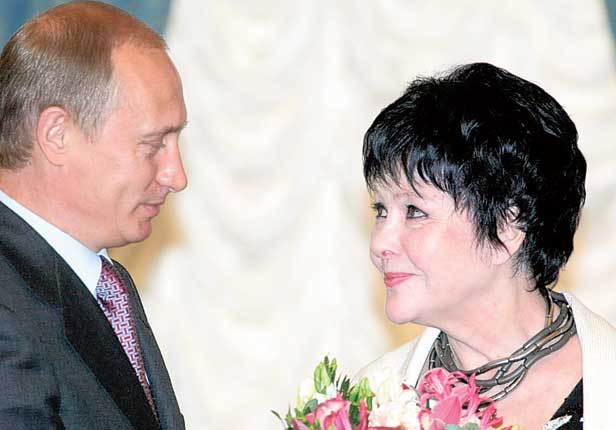Bella Akhmadulina: Poet who helped liberate Russian literary consciousness following the end of Stalin's rule

Bella Akhmadulina was part of that influential generation of Russian poets, which included Andrei Voznesensky (obituary 5 July 2010), Yevgeny Yevtushenko and others, who sought to liberate the Russian literary consciousness during the Thaw period which followed the end of Stalin's rule. She published more than 20 volumes of verse and was regarded by the writer Joseph Brodsky as a "treasure of Russian poetry".
Akhmadulina was born in 1937 in Moscow to a Tatar father, who worked as a customs official and a Russian-Italian mother, a major in the KGB. She married fellow poet Yevgeny Yevtushenko in 1954 and saw her poems appear for the first time the following year in Octiabr (October), an official Soviet literary magazine.
Her first poetry collection, Struna (The String, 1960), was published two years after her graduation from Moscow's Gorky Literary Institute. The work was critically praised but after Brezhnev's ascent to power in 1964, Akhmadulina was expelled from the Writer's Union for poems which were judged by literary apparatchiks as "superfluous and too intimate". Now without official support, she responded by printing her next volume Oznob (Fever, 1968) in Frankfurt, with English editions following in the US (1969) and from the British publisher Peter Owen in 1970. The title poem of this collection portrays the urge to write poetry as being a type of illness, which causes the writer to become a social outcast, perhaps reflecting Akhmadulina's own condition at the time:
"More and more severely the shivering / Lashed me, drove sharp, small nails into my skin, / It was like a hard rain pelting / An aspen and scourging all its leaves."
In 1979 Akhmadulina collaborated with 22 other authors on the Metropol Almanac anthology, which appeared as a samizdat edition. The anthology portrayed itself as a shelter for "homeless" Soviet writers and challenged the official literary establishment. Her featured work was the surrealistic short story "Many dogs and one dog"; the reaction from "official" writers was universally negative. Boris Polevoy, for example, stated that the book "...was addressed to our ideological enemies abroad." We are fortunate that this eclectic and quirky compendium appeared in English translation in 1982, introduced by Kevin Klose and describing itself as a "worldwide emblem of the conflict between government and artist in the Soviet Union".
In the same year as Metropol Almanac's Russian edition, the British publisher Carcanet featured Akhmadulina's work in its Three Russian Poets: Margarita Aliger, Yunna Moritz, Bella Akhmadulina. The anthology's translator and editor, Elaine Feinstein, called Akhmadulina "one of the great poets of the 20th century", alongside Akhmatova, Tsvetaeva, Mandelstam and Pasternak.
Akhmadulina worked tirelessly as an advocate for freedom of speech. Although she tended to avoid outright confrontation with the authorities, in 1980 she was a signatory to the letter criticising the internal exile of physicist and human rights activist Andrei Sakharov, banished to Gorky. Her former husband Yevgeny Yevtushenko spoke of her as one who "fearlessly defended all those who were in trouble". Following the collapse of the Soviet Union in 1991 she helped to establish the new Union of Russian Writers, together with Rimma Kazakova and Andrei Voznesensky.
Akhmadulina's first official recognition was outside her own countryin 1977, when she was made anHonorary Member of the American Academy of Arts and Literature. Subsequent awards from the Soviet Union and later Russian Federation included the Order of Friendship of Peoples (1984), State Prize of the USSR (1989) for Sad (The Garden, 1987), Presidential Prize (1998) and Russian State Prize (2004), conferred by the then-President Vladimir Putin.
Her life and work were the subject of The Poetic Craft of Bella Akhmadulina (1993) by Sonia Ketchian of Harvard University. Her most recent collections include Zaklinanie (Incantation, 2008) and Utro posle luny (The Morning after the Moon, 2009), which have not as yet made their way into English.
Professor Katharine Hodgson, Head of Modern Languages at Exeter University, said that Akhmadulina's work "took a different, more personal route to nonconformity, with a blend of the lyrical and the fantastic, in an exploration of poetic creativity and the otherness of the poet" and emphasised that "her stance was very much at odds with what was expected of a Soviet poet: instead of facile optimism, her work presented readers of the early 1960s with a vision of poetic inspiration that could involve disruption, alienation, and suffering, an alternative to socially-approved conformism, but a rich source of insight."
Isabella Akhatovna Akhmadulina, poet: born Moscow 10 April 1937; married 1954 Yevgeny Yevtushenko (divorced 1959), 1960 Yuri Nagibin (divorced 1968), thirdly Gennadi Mamlin, 1971 Eldar Kuliev (one daughter), 1974 Boris Messerer; one other daughter; died Peredelkino, Russian Federation 29 November 2010.
Subscribe to Independent Premium to bookmark this article
Want to bookmark your favourite articles and stories to read or reference later? Start your Independent Premium subscription today.

Join our commenting forum
Join thought-provoking conversations, follow other Independent readers and see their replies